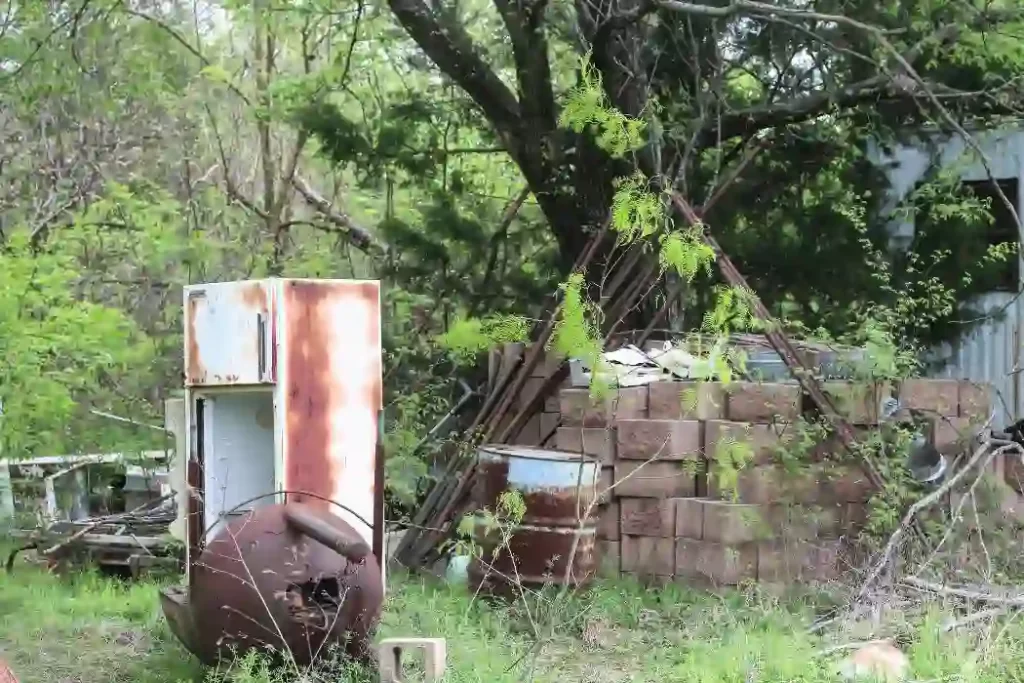In a world filled with modern and technologically advanced appliances, antique refrigerators offer a captivating glimpse into the past. These vintage treasures not only preserve food but also tell stories of a bygone era. With their timeless charm, unique designs, and attention to craftsmanship, antique refrigerators hold a special allure for collectors, history enthusiasts, and those seeking to add a touch of nostalgia to their homes. In this article, we will explore the allure of antique refrigerators, their historical significance, and how they can bring a sense of character and nostalgia to your living space.
Antique refrigerators transport us back to a time when refrigeration technology was in its infancy. These vintage appliances evoke a sense of nostalgia, reminding us of a simpler and slower-paced era. From their unique designs to the craftsmanship that went into their creation, antique refrigerators have a special appeal that transcends their functional purpose.
Embark on a captivating home renovation journey with antique refrigerators, infusing vintage charm and character into your modern kitchen setting.
The Charm of Antique Refrigerators
The allure of antique refrigerators lies in their ability to capture the essence of a specific period in history. They embody the craftsmanship, attention to detail, and artistic flair that characterized bygone eras. Antique refrigerators often feature ornate embellishments, hand-carved elements, and distinctive hardware, which add to their aesthetic appeal and charm.

Historical Significance
Antique refrigerators hold historical significance as they represent important milestones in the development of refrigeration technology. They showcase the ingenuity and innovation of early refrigeration pioneers who sought to find ways to preserve food and improve daily life. By owning an antique refrigerator, you become a custodian of history, preserving the heritage of these remarkable appliances.
Styles and Designs
Antique refrigerators come in a variety of styles and designs, reflecting the trends and preferences of different eras. Here are a few notable styles:
Icebox: Iceboxes were the predecessors of modern refrigerators. These early models relied on blocks of ice to keep food cool. Iceboxes often feature wooden construction, intricate hardware, and charming details that reflect the craftsmanship of the time.
Art Deco: In the early 20th century, art deco style emerged, characterized by sleek lines, geometric shapes, and streamlined designs. Art deco antique refrigerators showcase these features, offering a fusion of elegance and modernity.
Mid-Century Modern: The mid-20th century witnessed the rise of mid-century modern design, which emphasized simplicity, functionality, and clean lines. Antique refrigerators from this era often feature bold colors, chrome accents, and futuristic elements.
Incorporating Antique Refrigerators in Your Home
Integrating an antique refrigerator into your home decor can bring a unique sense of character and nostalgia. Consider the following tips:
Statement Piece: Let the antique refrigerator become a focal point in your kitchen or living space. Allow it to stand out by surrounding it with complementary vintage or retro-inspired decor.
Mix with Modern Elements: Create a captivating juxtaposition by pairing the antique refrigerator with modern appliances and furnishings. This blend of old and new creates a visually interesting and eclectic ambiance.
Theme-based Design: Incorporate the antique refrigerator into a themed room or home decor. For example, a retro-themed kitchen can embrace the vintage charm of the antique refrigerator and complement it with matching accessories, colors, and furniture.
Advantages of Antique Refrigerators
Antique refrigerators offer several advantages beyond their aesthetic appeal:
Unique Design: Antique refrigerators are one-of-a-kind pieces that add a sense of uniqueness and individuality to your home. Their design and craftsmanship are often unparalleled in modern appliances.
Sustainable Choice: By choosing an antique refrigerator, you contribute to sustainable living by repurposing and preserving a piece of history. It reduces waste and promotes the longevity of these remarkable appliances.
Conversation Starter: Antique refrigerators spark curiosity and conversation among guests. They offer an opportunity to share stories and discuss the historical significance of these appliances.
Maintenance and Care
Proper maintenance and care are essential for preserving the beauty and functionality of antique refrigerators. Here are some tips:
Gentle Cleaning: Clean the exterior surfaces of the antique refrigerator using a mild soap or a solution of warm water and vinegar. Avoid abrasive cleaners or harsh chemicals that may damage the finish.
Avoid Direct Sunlight: Place the antique refrigerator away from direct sunlight to prevent fading or discoloration of its exterior.
Regular Inspections: Periodically inspect the antique refrigerator for any signs of wear, damage, or rust. Address any issues promptly to prevent further deterioration.
Conclusion
Antique refrigerators capture the charm and nostalgia of a bygone era. They serve as reminders of the remarkable craftsmanship and innovation of the past. By incorporating an antique refrigerator into your home, you not only add a touch of history but also create a unique and captivating living space that tells its own story.

